Automobiles
Hyundai launches the ST1, its 1st electric work van with futuristic styling
A software-defined vehicle, the ST1 will hit the domestic market in the second half and globally later
By Apr 24, 2024 (Gmt+09:00)
3
Min read
Most Read
LG Chem to sell water filter business to Glenwood PE for $692 million


KT&G eyes overseas M&A after rejecting activist fund's offer


Kyobo Life poised to buy Japan’s SBI Group-owned savings bank


StockX in merger talks with Naver’s online reseller Kream


Meritz backs half of ex-manager’s $210 mn hedge fund


South Korea’s top automaker Hyundai Motor Co. said on Wednesday it is launching the ST1, its first fully electric work van that can be retrofitted for various commercial purposes.
The Hyundai ST1 is the Korean automaker’s first commercial EV with an initial lineup of a regular cargo van, a refrigerated van and a basic chassis cab – all developed to cater to small businesses’ need for logistics and deliveries.
One of Hyundai’s software-defined vehicles (SDVs), the ST1 can be retrofitted to a variety of specialty models such as police vehicles, emergency rescue vehicles, camping cars, electric bike charging vehicles, mobile smart farms and pet care shops, the company said.
Hyundai said it has worked with local delivery companies, including CJ Logistics Co., Lotte Group and Kurly Inc. to find out what they need from a work van.
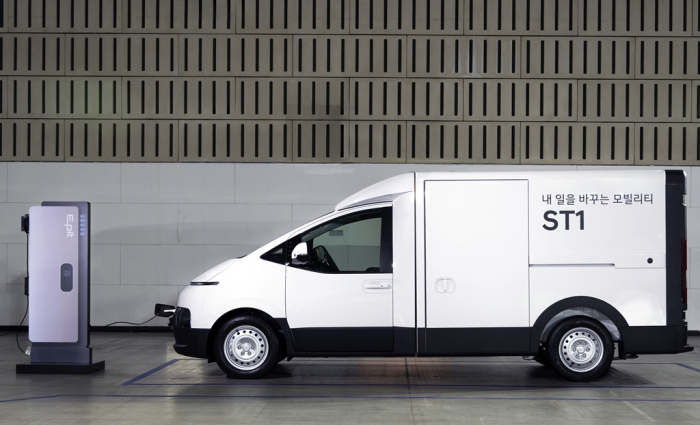
Hyundai unveiled the design of the ST1 commercial EV platform last month as it aims to solidify its EV leadership from passenger electric cars to commercial vehicles.
The ST1 has a futuristic front-end design derived from Hyundai’s Staria minivan or the KONA crossover.
The ST1 stands for Service Type 1 with the number 1 indicating that it is the first model of the platform.
VARIOUS SOFTWARE FEATURES
The Hyundai ST1 is equipped with Plug & Play technology, allowing users to create separate connectors in and outside the ST1 and use vehicle power and communication data in line with their business needs.
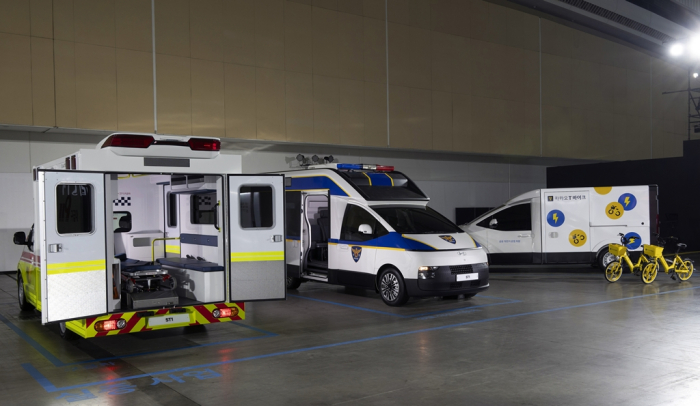
The carmaker said it has applied the data open API, or application programming interface, to the ST1 for the first time.
Through the system, the ST1 can transmit real-time vehicle information, such as vehicle location, speed, ignition status and battery charge level as well as vehicle operation analysis data to customers’ computer systems.
The ST1 is also equipped with an Android operating system-based infotainment device.
“The ST1 is a business platform with various expansion possibilities,” said Chung Yoo-suk, head of Hyundai’s domestic vehicle business. “Hyundai will start with logistics and delivery, but the ST1 will be expanded into a platform tailored to various purposes in the future.”
The ST1 Cargo and the ST1 Cargo Refrigerated models sit on a 76.1 kWh battery.
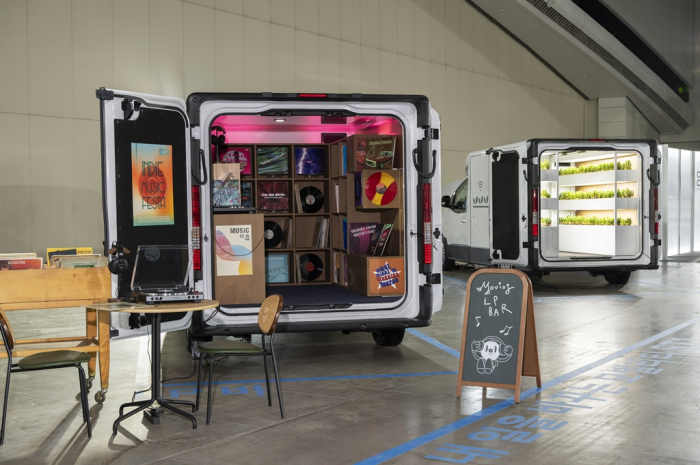
The Cargo and the Cargo Refrigerated can run 317 km and 298 km, respectively, on a single charge.
With an ultra-fast charging system, the vehicle’s batteries can be charged from 10% to 80% in 20 minutes, according to Hyundai.
EASIER TO LOAD AND UNLOAD
The company said it developed the ST1 to ease the loading and unloading of cargo by lowering the ride height.
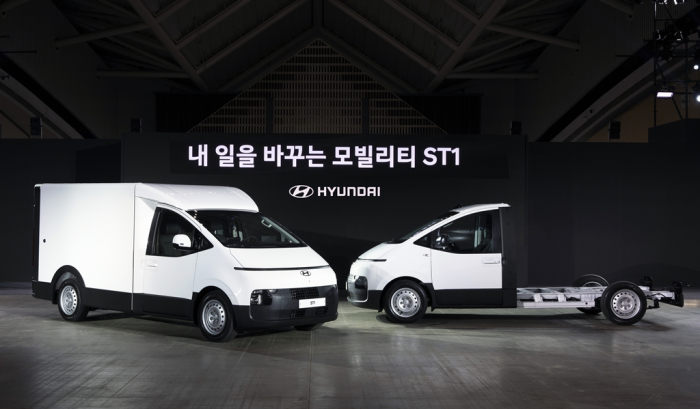
The ST1’s exterior is designed for safety and practicality, with a semi-bonnet design that protrudes forward from the cab for added space during a collision. Hyundai added black protectors on the front bumper, side skirts, and rear door trim, where scratches typically occur.
The company said the ST1 will hit the domestic market in the second half of this year and take it to the global market later.
Hyundai Motor Chief Executive Chang Jae-hoon said last month the company’s SDV push will go into full swing this year.
SDVs, often referred to as smartphones on wheels, enable constant and seamless upgrades of a car’s functions through an over-the-air system throughout the car’s lifetime.
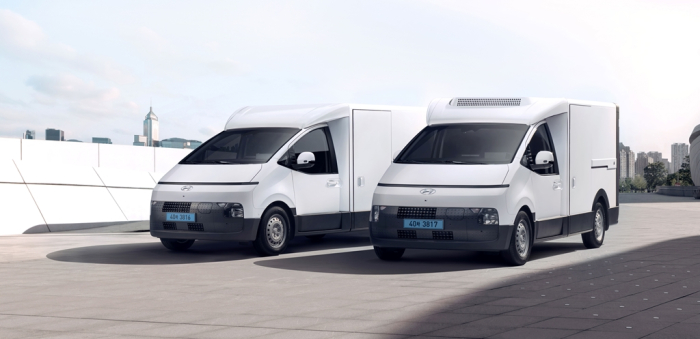
As the automotive industry’s battle to win the market with hardware advances is nearing its limit, Hyundai has turned its focus to software upgrades like in-vehicle information (IVI) systems and self-driving technology.
Hyundai’s sister company Kia Corp. is also planning to take on commercial EVs with its customizable purpose-built vehicles (PBVs).
Analysts said Hyundai and Kia will compete with Ford, Rivian, GM and Stellantis, all ramping up production of commercial EVs.
Write to Jin-Won Kim at jin1@hankyung.com
In-Soo Nam edited this article.
More to Read
-
 Corporate strategyHyundai vows to cut costs, seek shift toward SDVs as EV uptake slows
Corporate strategyHyundai vows to cut costs, seek shift toward SDVs as EV uptake slowsMar 21, 2024 (Gmt+09:00)
3 Min read -
 AutomobilesHyundai Motor unveils design of commercial EV platform
AutomobilesHyundai Motor unveils design of commercial EV platformMar 14, 2024 (Gmt+09:00)
1 Min read -
 Korean innovators at CES 2024Kia, Uber to jointly develop custom-tailored electric ride-hailing PBV
Korean innovators at CES 2024Kia, Uber to jointly develop custom-tailored electric ride-hailing PBVJan 11, 2024 (Gmt+09:00)
2 Min read -
 Korean innovators at CES 2024Hyundai’s 42dot, Samsung to develop AI-powered SDV platform
Korean innovators at CES 2024Hyundai’s 42dot, Samsung to develop AI-powered SDV platformJan 10, 2024 (Gmt+09:00)
2 Min read -
 AutomobilesHyundai to spend $18 bn on EVs; Kia breaks ground on first PBV plant
AutomobilesHyundai to spend $18 bn on EVs; Kia breaks ground on first PBV plantApr 11, 2023 (Gmt+09:00)
3 Min read
Comment 0
LOG IN


